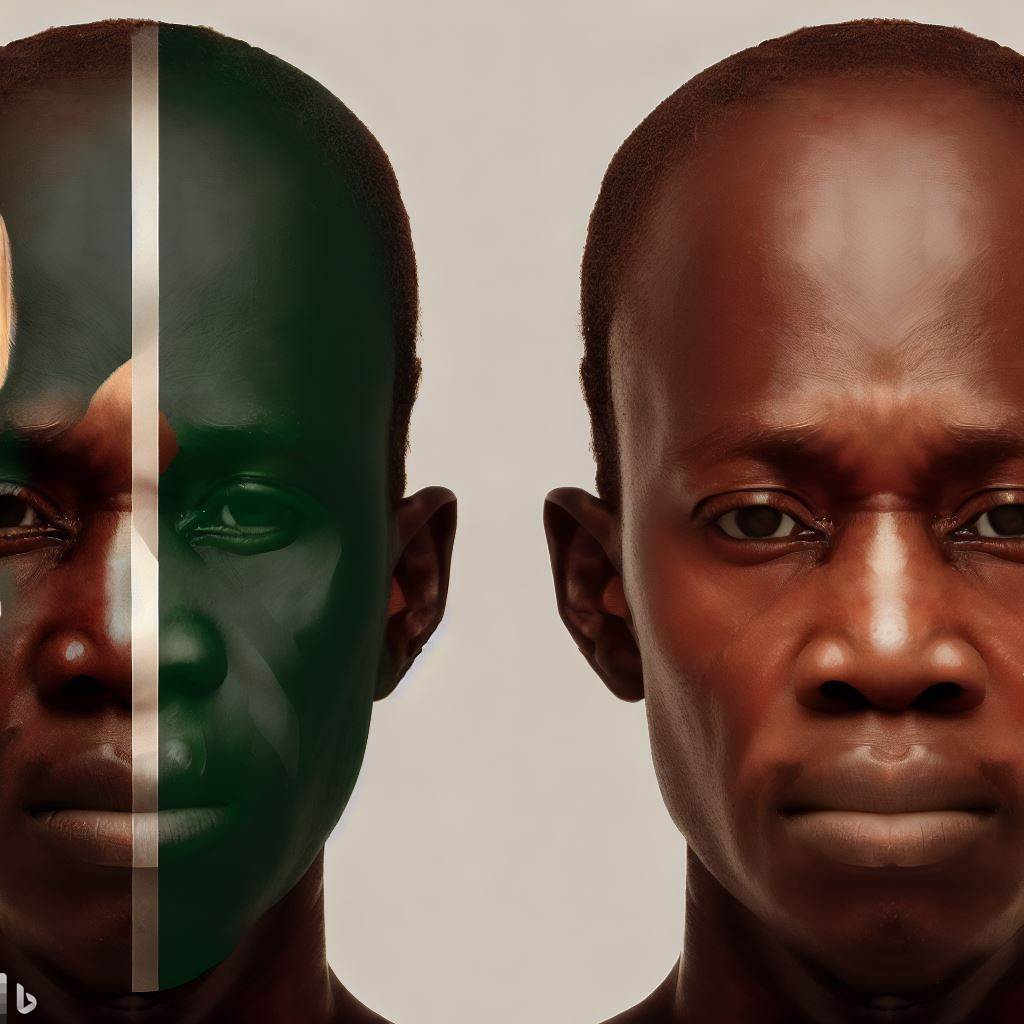Introduction
Importance of counseling in Nigeria
Counseling in Nigeria Comparisons to Global Practice and types of counselling.
Counseling plays a vital role in addressing the psychological and emotional needs of individuals in Nigeria.
Addressing mental health challenges, promoting well-being in Nigeria’s diverse society.
Purpose of the blog post
This blog post aims to explore and compare the practice of counseling in Nigeria with global standards.
Explores counseling’s significance, focusing on its evolution and impact in Nigeria.
Overview of counseling in Nigeria
Counseling in Nigeria dates back to the 1960s, with a focus on career guidance and religious counseling.
Brief History: Counseling’s emergence in traditional practices, community guidance, and informal support systems.
Evolution of Practice: Transition to formal counseling education and integration into schools, workplaces, and institutions.
Counseling’s journey in Nigeria reflects its transformative role in mental health support and personal development.
Over the years, counseling in Nigeria has expanded to encompass various fields, including mental health, education, and relationship counseling.
Read: Spotlight on Psychiatry: Mental Health in Nigeria
Types of counseling services available in Nigeria
In Nigeria, there are various types of counseling services available to cater to the diverse needs of individuals.
These counseling services play a crucial role in addressing personal and societal issues in the country.
Individual counseling
This type of counseling focuses on providing one-on-one support and guidance to individuals. It helps in addressing personal challenges, mental health issues, and emotional well-being.
Group counseling
Group counseling brings together individuals facing similar challenges or issues.
It provides a supportive and safe environment where participants can share experiences, learn from each other, and receive guidance from a professional counselor.
Family counseling
Family counseling aims to improve communication and resolve conflicts within families. It addresses relationship issues, parenting problems, and helps in building stronger and healthier family dynamics.
Career counseling
This type of counseling assists individuals in making informed decisions regarding their career choices and paths.
It helps in exploring different career options, identifying strengths and interests, and setting goals for professional growth.
Marriage counseling
Marriage counseling is designed to help couples address conflicts, improve communication, and enhance their relationship.
It focuses on strengthening the bond between spouses and resolving issues that may arise within the marriage.
The availability of these counseling services in Nigeria is vital for the overall well-being of individuals and the society as a whole.
They provide an avenue for individuals to seek help and support in various aspects of their lives.
In recent years, the demand for counseling services in Nigeria has increased significantly.
This can be attributed to various factors such as rapid urbanization, societal changes, and increased awareness about mental health and well-being.
However, despite the growing need for counseling services, there are still challenges that need to be addressed.
Overcoming obstacles requires addressing limited access to trained counselors, insufficient awareness about counseling benefits, and cultural stigmas around mental health help-seeking.
To improve the provision of counseling services in Nigeria, it is essential to invest in training more counselors and mental health professionals.
Additionally, awareness campaigns and educational programs should be implemented to eliminate the stigma associated with seeking help for mental health issues.
Nigeria offers a range of counseling services to address the diverse needs of individuals.
These services, including individual counseling, group counseling, family counseling, career counseling, and marriage counseling, play a crucial role in promoting mental health and well-being.
However, efforts are needed to expand access to counseling services, raise awareness, and eliminate stigmas surrounding seeking help for mental health issues in Nigeria.
Read: Role of Pharmacists in Nigeria’s Evolving Healthcare System
Challenges faced by the counseling profession in Nigeria
Despite the increasing recognition and importance of mental health, the counseling profession in Nigeria faces various challenges that hinder its effectiveness and growth.
Stigma surrounding mental health and counseling
One major challenge faced by the counseling profession in Nigeria is the persistent stigma surrounding mental health issues and seeking professional help.
Many people consider mental health problems a taboo and are reluctant to seek counseling due to fear of being judged or ostracized.
Lack of awareness and understanding of counseling
Another significant challenge is the lack of awareness and understanding of counseling among the general population in Nigeria.
Many people are not familiar with what counseling entails and the benefits it can offer. This lack of understanding contributes to the underutilization of counseling services.
Limited funding and resources for counseling centers
Counseling centers in Nigeria face a shortage of funding and resources, which directly affects their ability to provide quality services.
Limited financial support hampers the expansion of counseling centers and restricts the availability of necessary resources such as trained staff, appropriate facilities, and up-to-date materials.
Shortage of trained and qualified counselors
There is a shortage of trained and qualified counselors in Nigeria, making it challenging to meet the growing demand for counseling services.
The profession lacks sufficient numbers of professionals who possess the necessary skills and expertise to address various mental health issues effectively.
These challenges create significant obstacles for the counseling profession in Nigeria, making it difficult to offer accessible and high-quality services to those in need.
However, efforts are being made to address these challenges and improve the state of counseling in the country.
- Raising awareness: Initiatives are being taken to educate the public about the importance of mental health and counseling. Awareness campaigns and sensitization programs aim to combat the stigma and increase understanding.
- Advocating for funding: Various organizations and professionals are advocating for increased funding from the government and other stakeholders to support counseling centers and expand their resources.
- Training and capacity building: Efforts are being made to train more individuals in counseling and enhance the skills of existing professionals.
This includes providing scholarships, organizing workshops, and establishing counseling training programs. - Collaboration and partnerships: Collaborations between counseling associations, universities, and other institutions are being fostered to promote knowledge sharing, research, and the exchange of best practices.
Addressing these challenges will require a collective effort from individuals, organizations.
And the government to create an environment that supports and prioritizes the mental health needs of the Nigerian population.
By overcoming these obstacles, the counseling profession can play a crucial role in promoting well-being and improving the overall mental health landscape in Nigeria.
Read: Nursing in Nigeria: A Comprehensive Career Guide

Comparison to global counseling practices
When comparing counseling practices in Nigeria to those around the world, several key differences emerge:
Differences in counseling education and training
Counseling education and training in Nigeria may not always align with global standards.
While some Nigerian universities offer counseling programs, there may be variations in curriculum and training methods.
It’s essential to ensure that counseling programs in Nigeria meet international standards to enhance professionalism and best practices.
Variation in counseling techniques and approaches
Cultural diversity in Nigeria plays a significant role in shaping counseling techniques and approaches.
Traditional healing practices and indigenous beliefs often influence counseling methods in Nigeria.
It’s important for counselors in Nigeria to strike a balance between respecting cultural traditions and incorporating modern counseling techniques.
Availability and accessibility of counseling services
Compared to developed countries, Nigeria faces challenges in providing widespread and accessible counseling services.
Limited resources and a high demand for counseling contribute to the scarcity of services in certain regions.
Efforts should be made to expand counseling services across Nigeria, especially in rural areas where access is particularly limited.
Cultural factors influencing counseling practices
Cultural factors greatly influence counseling practices in Nigeria, shaping the therapeutic relationship and counseling strategies.
The collectivist nature of Nigerian society emphasizes community and family involvement in decision-making and problem-solving.
Counselors must be culturally sensitive and adapt their counseling approaches to align with the cultural context of their clients.
When comparing counseling practices in Nigeria to global standards, differences in education, techniques, accessibility, and cultural factors become evident.
Recognizing these variations and addressing any disparities can help improve the effectiveness and reach of counseling services in Nigeria.
Read: Unfolding the Vast World of Healthcare Professions in Nigeria
Integration of Traditional and Western Counseling Practices in Nigeria
In Nigeria, the integration of traditional and western counseling practices has become an important aspect of providing effective mental health support.
This integration aims to address the diverse cultural backgrounds and beliefs of individuals seeking counseling services.
Importance of Cultural Sensitivity in Counseling
One of the key reasons for integrating traditional and western counseling practices in Nigeria is the importance of cultural sensitivity.
Recognizing and respecting cultural differences allows counselors to establish a rapport and trust with their clients.
Cultural sensitivity in counseling involves understanding the impact of culture on an individual’s beliefs, values, and customs.
It acknowledges that each culture has its unique ways of perceiving and addressing mental health issues.
Examples of Traditional Counseling Methods Used in Nigeria
Nigeria has a rich cultural heritage, and traditional counseling methods have been practiced for centuries. Some examples of traditional counseling methods used in Nigeria include
- Dibia: This traditional healer combines counseling with herbal remedies and spiritual rituals to address mental health concerns.
- Egungun: An ancestral worship practice that involves seeking guidance and support from deceased family members through rituals and ceremonies.
- Obanje: A form of counseling that focuses on individuals believed to be possessed by an evil spirit. Rituals and prayers are used to address the spiritual aspects.
Benefits and Drawbacks of Blending Traditional and Western Counseling Approaches
The blending of traditional and western counseling approaches in Nigeria has its benefits and drawbacks, which are essential to consider:
Benefits:
- Increased cultural relevance: Integrating traditional counseling practices allows for a more culturally appropriate approach to mental health support.
- Greater acceptance: Incorporating traditional methods can enhance the acceptability of counseling services among individuals who may be hesitant to seek western-based therapies.
- Comprehensive treatment: Blending traditional and western approaches provides a holistic treatment approach by addressing both psychological and spiritual dimensions of mental health.
Drawbacks:
- Lack of standardized practices: Traditional counseling methods can vary across different regions and cultures, making it challenging to establish standardized approaches.
- Potential conflict with evidence-based practices: Some traditional methods may not align with evidence-based practices, leading to debates about their effectiveness.
- Overemphasis on spirituality: Integrating traditional methods heavily focused on spirituality may overlook other psychological aspects of mental health.
The integration of traditional and western counseling practices in Nigeria has brought about significant changes in the mental health landscape.
Emphasizing cultural sensitivity, incorporating traditional methods, and considering the benefits and drawbacks are crucial aspects in providing effective counseling services.
Read: Top Institutions to Study Phlebotomy in Nigeria
You Might Also Like: Working Conditions for Radiation Therapists in Nigeria
Impact of counseling on Nigerian society
Improvement in mental health and well-being
- Counseling has greatly contributed to the improvement of mental health and well-being in Nigeria.
- The availability of counseling services has helped individuals deal with their emotional and psychological challenges.
- Nigerians who seek counseling often experience a reduction in symptoms of mental illnesses such as anxiety and depression.
Strengthening of interpersonal relationships
- The strengthening of interpersonal relationships is another significant impact of counseling in Nigerian society.
- Through counseling, individuals learn effective communication skills and conflict resolution strategies.
- Couples who receive counseling often report improved marital satisfaction and a decrease in relationship conflicts.
Enhanced decision-making and problem-solving skills
- Counseling has also enhanced decision-making and problem-solving skills among Nigerians.
- Individuals who undergo counseling gain a better understanding of their options and become more confident in making choices.
- Counselors provide guidance and support in exploring different solutions and evaluating their potential outcomes.
Increased productivity and workforce development
- The increased productivity and workforce development is yet another positive impact of counseling in Nigerian society.
- Through counseling, employees are able to identify and address work-related issues that hinder their performance.
- Nigerian companies that invest in employee counseling programs witness a decrease in absenteeism and turnover rates.
- Counselors also assist individuals in developing personal and professional goals, leading to career advancement and job satisfaction.
Generally, counseling has had a significant impact on Nigerian society.
It has improved mental health, strengthened interpersonal relationships, enhanced decision-making skills, and increased productivity in the workforce.
By providing individuals with the necessary support and guidance, counseling has contributed to the overall well-being and development of individuals and the society as a whole.
Read: The Path to Becoming a Surgeon in Nigeria
Government initiatives and policies in support of counseling in Nigeria
The Nigerian government has taken several initiatives and implemented policies to support and promote the practice of counseling in the country.
Efforts to promote mental health awareness and education
- Establishment of awareness campaigns to reduce the stigma surrounding mental health issues.
- Inclusion of mental health education in school curricula to educate young individuals about the importance of emotional well-being.
- Development of public awareness programs to inform citizens about available counseling services.
Allocation of resources for counseling infrastructure and training
- Increased budgetary allocations to develop counseling centers and facilities across the country.
- Provision of scholarships and grants to individuals interested in pursuing counseling as a career.
- Training programs and workshops for existing counselors to enhance their skills and knowledge in the field.
Partnerships with international organizations to improve counseling practices
- Collaboration with World Health Organization (WHO) to adopt global best practices in counseling.
- Partnerships with international NGOs, such as Mental Health America, to exchange expertise and knowledge.
- Joint research projects with foreign universities to explore innovative counseling techniques and therapies.
These government initiatives and policies play a vital role in promoting counseling in Nigeria.
By focusing on mental health awareness and education.
The government aims to break the stigma associated with seeking counseling services and create a more supportive environment for individuals struggling with their mental well-being.
Furthermore, allocating resources to counseling infrastructure and training guarantees adequate facilities and professionals to meet rising demand.
This not only improves the accessibility of counseling but also enhances the quality of support provided to individuals in need.
The partnerships with international organizations further strengthen the counseling practices in Nigeria.
By collaborating with renowned institutions and organizations, Nigerian counselors have the opportunity to learn from global experts and implement evidence-based approaches in their practice.
This helps in keeping up with the latest developments in the field and delivering effective counseling services to the Nigerian population.
The Nigerian government’s initiatives and policies demonstrate a strong commitment to supporting and advancing counseling practices in the country.
By promoting mental health awareness, allocating resources for counseling infrastructure.
And collaborating with international organizations, Nigeria significantly enhances citizen well-being through effective counseling.
Conclusion
This blog chapter has highlighted key points of counseling in Nigeria, comparing them to global practices.
It is crucial to emphasize the importance of continuous development and improvement in counseling practices in Nigeria.
Teaching under stress is a formidable challenge Nigerian educators face, demanding resilience and support.
- Acknowledging Struggles: Recognizing the stressors teachers encounter in their daily responsibilities.
- Impact on Education: Highlighting how stress can affect teaching quality and student outcomes.
- Empathy and Support: Emphasizing the importance of understanding and providing resources for stressed teachers.
- Promoting Well-being: Encouraging schools and authorities to prioritize educators’ mental and emotional health.
- Collective Responsibility: Acknowledging that addressing teacher stress is vital for an effective education system.
Nigerian teachers play a pivotal role in shaping the nation’s future, necessitating a supportive environment for their well-being. Efforts to alleviate stress can lead to a positive educational landscape.
This will ensure that individuals receive the highest quality of care and support. Seeking counseling support when necessary is highly encouraged to promote mental well-being and personal growth.




